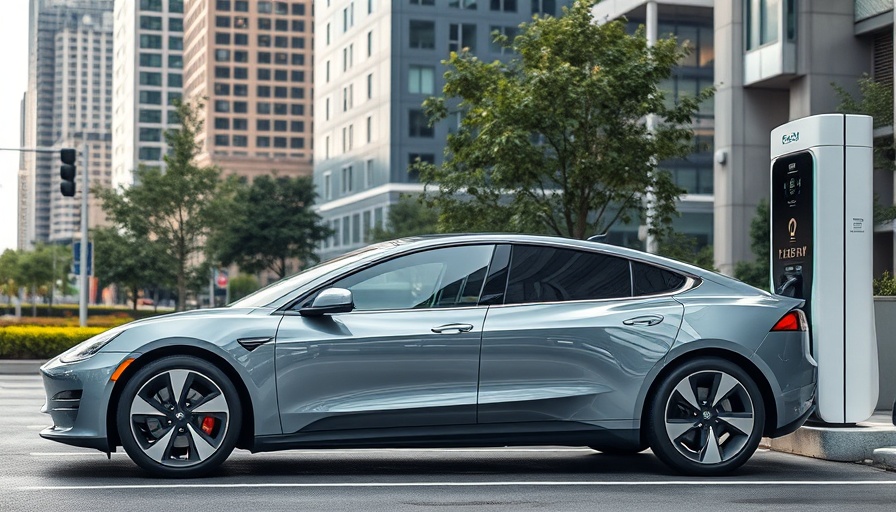
The Shifting Landscape of Electric Vehicles: Understanding the Basics
Electric vehicles (EVs) are revolutionizing how we think about transportation. Defined broadly, an electric car utilizes an electric drive motor for propulsion, which includes various configurations like hybrids, plug-in hybrids, and the two main types of fully electric vehicles: battery-electric vehicles (BEVs) and hydrogen fuel-cell electric vehicles (HFCVs). As the automotive industry embraces this transition, it's essential to grasp the implications and nuances of EV ownership.
Pros of Electric Vehicles: Efficiency and Cost-Effectiveness
One of the significant advantages of owning an electric vehicle is its operational efficiency. EVs are often more affordable to run compared to their gasoline counterparts, thanks to lower fuel costs and reduced maintenance needs. For instance, BEVs, which depend solely on electric power, eliminate the complexities of an internal combustion engine, resulting in fewer mechanical issues.
Moreover, EVs contribute to sustainability by reducing reliance on fossil fuels. Their operation produces far fewer emissions than traditional vehicles, and for those driven by renewable energy, the positive environmental impact is amplified. As a result, transitioning to EVs becomes a viable option for those looking to contribute positively to the planet while potentially saving on gas expenditures.
The Drawbacks of Electric Vehicles: What Buyers Should Consider
However, it’s not all smooth sailing for electric car enthusiasts. One of the most significant challenges is the range anxiety associated with battery electric vehicles. While infrastructure is improving, charging stations may not be as ubiquitous as gas stations, particularly in rural areas. Additionally, the cost of some electric vehicles can be daunting. Although prices have been declining, the initial investment remains higher than that of many gasoline-powered cars.
Furthermore, the hybrid models present their own set of challenges. While they do promise better fuel economy without requiring drastic lifestyle changes, they can sometimes lead to confusion over their operational efficiencies and dependencies on both electricity and traditional fuel sources. In essence, consumers may find themselves weighing convenience against environmental impact.
Future Directions: The Evolution of the Electric Vehicle Market
As technology advances, the electric vehicle market is likely to grow more robust. Innovations in battery technology promise to enhance range and reduce charging time, which may alleviate many of the concerns potential buyers currently face. Additionally, increased investment in charging infrastructure—materializing in urban and rural areas alike—could pave the way for greater consumer adoption.
Making Informed Decisions: The Value of Knowledge
Understanding the pros and cons of electric vehicles empowers consumers and dealership owners alike to make informed decisions. By weighing both sides of the electric car conversation, stakeholders can better navigate the transition. Consumers can choose a vehicle that aligns with their lifestyle and values, while dealership leaders can provide tailored solutions that meet the evolving demands of their customers.
As the automotive industry continuously adapts to new technologies and consumer preferences, staying informed is crucial. Potential owners should consider trial tests of different models, learning about charging setups that fit their daily needs. With research and proper knowledge, the shift towards electric vehicles can be rewarding.
 Add Row
Add Row  Add
Add 




Write A Comment